King and Queen postpone engagements after surprise General Election decision

The royal family has postponed engagements “which may appear to divert attention or distract from the election campaign” after Rishi Sunak called a surprise summer General Election.
Buckingham Palace said the King and Queen sent their “sincere apologies” to those affected, after Charles agreed on Wednesday to the Prime Minister’s request to dissolve Parliament for an election – for the first time in his reign.
The King and Queen’s D-Day 80th anniversary appearances in Portsmouth and Normandy in June are expected to go ahead as scheduled, but the announcement of a July 4 vote disrupted other events in the carefully planned forthcoming royal diaries.
A Buckingham Palace spokesperson said: “Following the Prime Minister’s statement this afternoon calling a General Election, the royal family will, in accordance with normal procedure, postpone engagements that may appear to divert attention or distract from the election campaign.
“Their Majesties send their sincere apologies to any of those who may be affected as a result.”
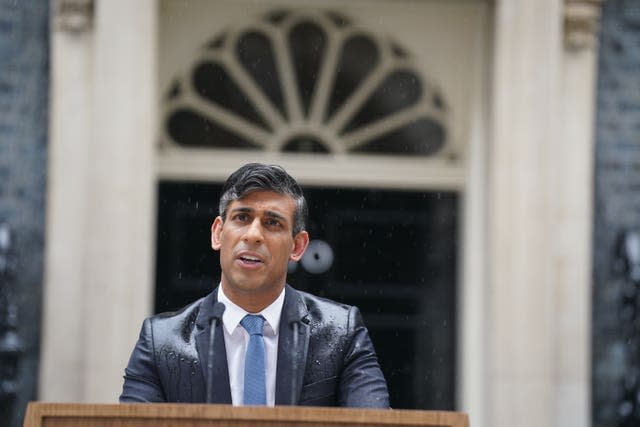
Heir to the throne the Prince of Wales also pulled out of a day of previously unannounced engagements for Thursday, later on Wednesday evening after Kensington Palace received updated guidance from Buckingham Palace.
The Royal National Lifeboat Institution garden party on Thursday, marking the 200th anniversary of the lifesaving charity, will still go ahead, with thousands of guests set to descend on the Palace.
Charles, who has only just returned to public-facing duties after his cancer diagnosis, and Camilla are not, and never were, due to attend the outdoor gathering.
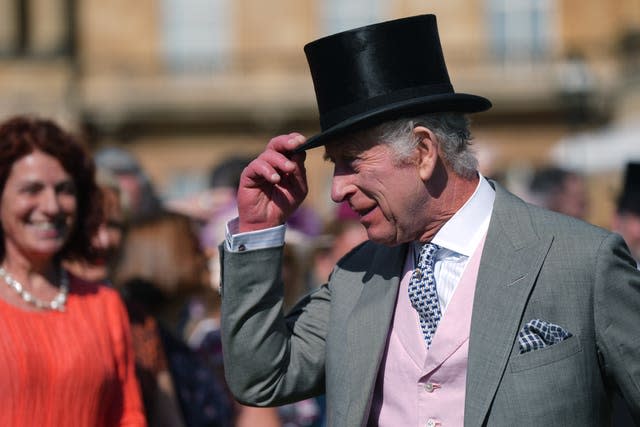
But the King’s public engagements for the rest of the week are now off – including a visit to Crewe on Friday to tour a Bentley factory and a community centre which supports people struggling financially, and another as yet-not publicly announced event that was due to happen elsewhere on Thursday.
It is understood the move is not a blanket approach to future events, and engagements will be reviewed on a case-by-case basis.
The unusual July election date means the King’s official birthday – Trooping the Colour on June 15 – falls in the run-up to the vote, but it is not yet clear whether the celebrations and famous balcony appearance will take place.
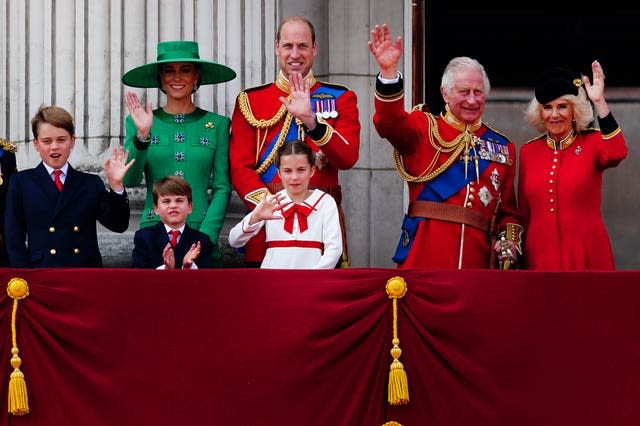
The date is also traditionally used to release the King’s Birthday Honours, co-ordinated by the Cabinet Office.
There is no confirmation as to whether the upcoming Japanese state visit, which was previously postponed due to the pandemic, will still happen in June.
The sovereign does not vote and is a constitutional monarch who must remain politically neutral.

Charles could be set for his third prime minister.
His first was Liz Truss – but her stint in charge was the shortest in British history – and the King welcomed Mr Sunak as his second PM just six weeks after acceding to the throne.
Mr Sunak revealed he spoke with King earlier on Wednesday to inform him of his decision and the King had agreed to the request for the dissolution of Parliament.

The Palace said Charles met Mr Sunak in person at the royal residence in London on Wednesday afternoon, following Charles’ Prince’s Trust Awards engagement.
They spent around 15 minutes together in the King’s private audience room, in place of their normal weekly meeting on Wednesday evening.
Mr Sunak is not expected to visit the King again on Wednesday.
The King, who is still undergoing treatment for cancer, has carried out a flurry of engagements since restarting public appearances in April and now has a number of duties ahead of him after the Prime Minister announced his plan for the country to go to the polls.
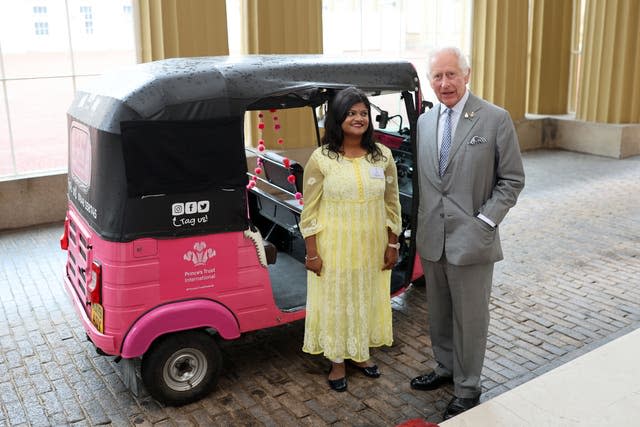
Speaking at Downing Street, Mr Sunak said: “Earlier today I spoke with His Majesty the King to request the dissolution of Parliament.
“The King has granted this request and we will have a General Election on July 4.”
The King was hosting the winners of The Prince’s Trust awards at the Palace in the afternoon, where TV star Declan Donnelly joked that his celebrity partner Anthony McPartlin was missing from the reception because he was breastfeeding his newborn baby.
The engagement went ahead as planned, without any changes to timings, finishing at around 3.15pm.
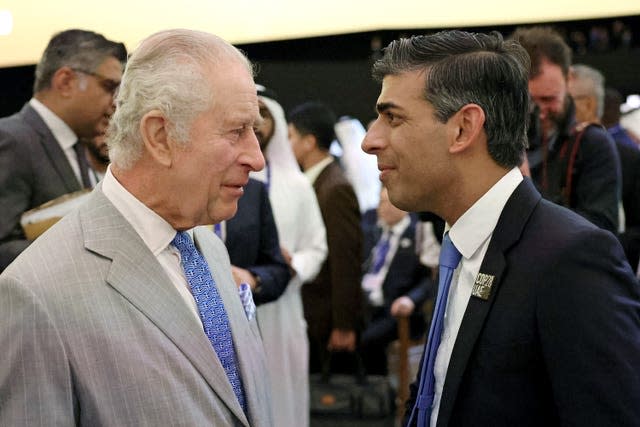
The King was also due to hold a Privy Council meeting afterwards, but Buckingham Palace has yet to confirm whether this went ahead.
In a statement, Downing Street said: “The Prime Minister has today asked His Majesty The King to proclaim the Dissolution of Parliament. His Majesty has been graciously pleased to signify that he will comply with this request.
“Parliament will be prorogued on Friday 24 May. Dissolution will take place on Thursday 30 May. The General Election will take place on Thursday 4 July.
“The new Parliament will be summoned to meet on Tuesday 9 July, when the first business will be the election of the Speaker and the swearing-in of members, and the State Opening will be on Wednesday 17 July.”
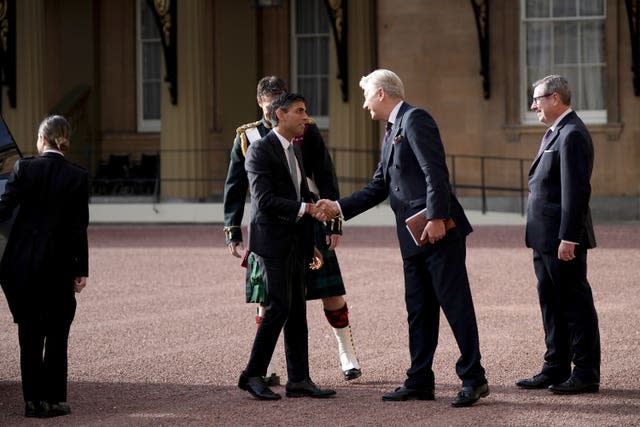
Under the Dissolution and Calling of Parliament Act 2022, which repealed the Fixed Terms Parliament Act 2011, the PM can seek the monarch’s permission to dissolve parliament and call a general election at a time of his choosing.
The date of the dissolution is set by a royal proclamation issued by the King, on the advice of his prime minister, and timed to allow for the polling day to occur on Mr Sunak’s chosen date.
The 2022 Act restored the practice whereby the monarch dissolves parliament at the request of the PM, without the need for a parliamentary vote on plans for an election.
There is no fixed number of days that have to take place between the announcement of an election and dissolution.
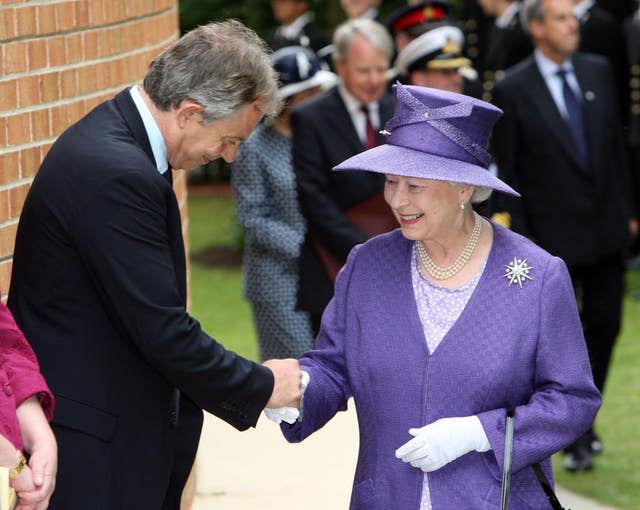
It is typically a few days later to allow the Commons and Lords to finish any urgent business.
In previous times prior to 2011, the late Queen’s agreement to dissolve parliament meant she had to hold a meeting of the Privy Council to approve a royal proclamation which was signed and affixed with the Great Seal of the Realm.
The date of the dissolution of parliament is laid down in statute, as 25 working days, not counting weekends or any bank holidays that fall within this period, before the proposed polling day.
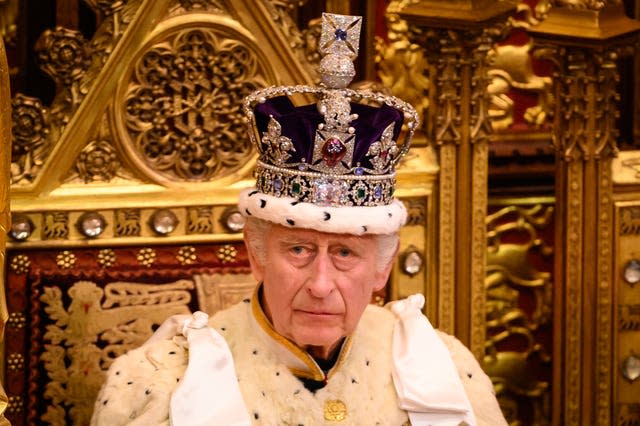
For a July 4 election, this is May 30.
Dissolution is the official term for the end of a parliament.
The day after the General Election, it will be the King’s duty to invite the leader of the party that won the most seats in the House of Commons to become prime minister and to form a government – one of the few remaining personal prerogatives of the sovereign.
It was one of the Queen’s last duties, just two days before she died, when she appointed Liz Truss as prime minister, at Balmoral Castle.
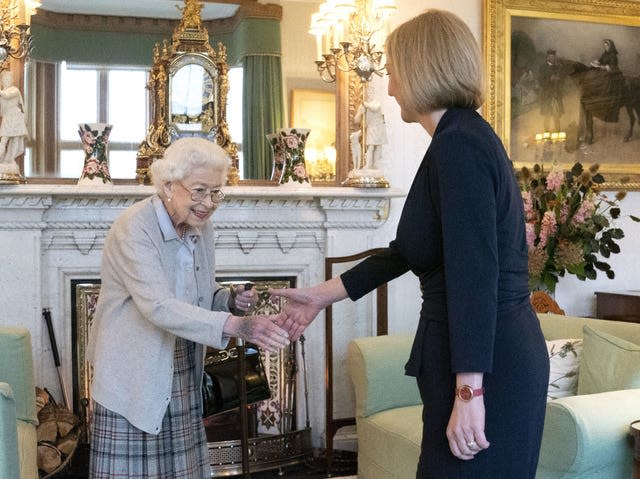
It was the first time the Queen, who had mobility issues, carried out the key duty at her Scottish retreat rather than at Buckingham Palace.

 Yahoo News
Yahoo News 
